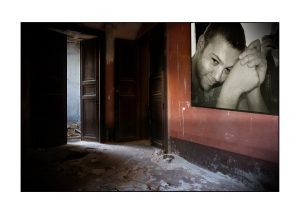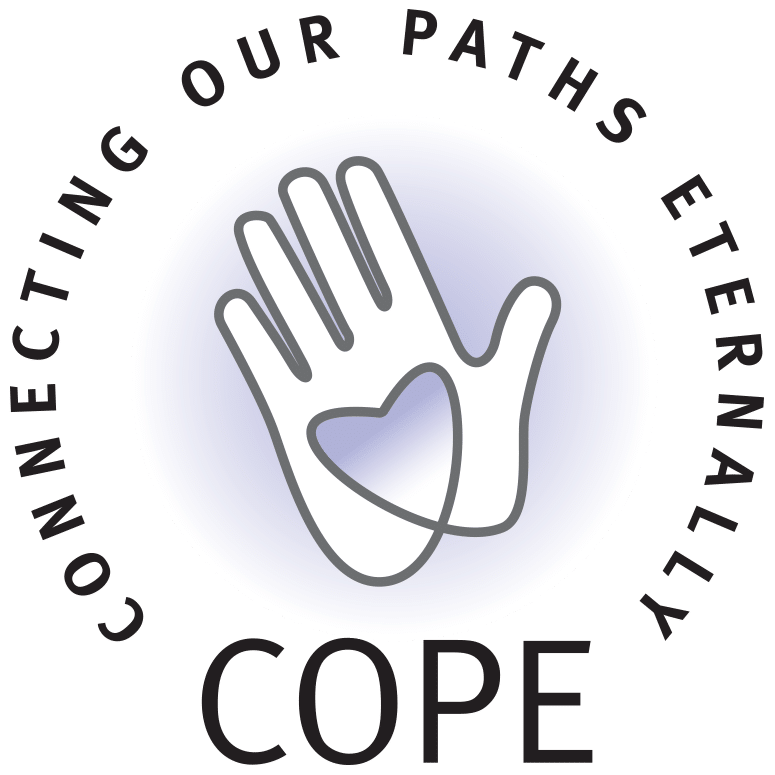

The Good Grief Project: Finding Meaning Through the Healing Power of Creativity and Community
COPE/Pinelawn November 2024 workshop
Grief is often perceived as a passive state—something endured. But for Jane Harris and Jimmy Edmonds, the tragic loss of their 22-year-old son, Josh, became a poignant call to uniquely confront their sorrow. Their story is one of heartbreak transformed into innovative resilience. Through their non-profit organization, The Good Grief Project, they’ve shown that grief, while deeply personal, can also be a profoundly creative and collective experience. During their November presentation for COPE and Pinelawn, they spoke of their mission to help other families find their way into and through their grief.
Jimmy, a documentary filmmaker, and Jane, a therapist and filmmaker, recalled the moment thirteen years ago that upended their world.
“It was like a bomb went off in our house,” Jimmy said.
At 10:30 on a Sunday morning, as Jane returned from her run, and Jimmy was putting coffee and toast on the table, two young policemen showed up at their door to tell them that their son Josh, who was on holiday in Vietnam, had been killed in an accident. “Everything collapsed – we collapsed,” he recalled.
In the days following Josh’s death, the family, including Josh’s older brother Joe, and younger sister, Rosa, huddled together, overwhelmed by the enormity of organizing a funeral. “It felt so wrong—parents shouldn’t have to bury their children,” Jane said. Yet, amidst the chaos, they found solace in taking charge of the ceremony. Navigating their way through Josh’s funeral marked their first step towards finding meaning in the void left by his absence.
Determined to honor Josh in a way that felt true to him, they rejected conventional funeral directors and leaned on their own imaginations to create a deeply personal and intentional ceremony. “This was our first creative act of grief,” Jimmy said. “We filmed the funeral, invited Josh’s friends to contribute, and created Beyond Goodbye, a tribute to Josh that became an essential part of our healing.” One of the core ideals of their organization, The Good Grief Project, is that grief can be an active and creative endeavor. “It’s about continuing the bond with the person we’ve lost, even in their absence.”
Despite their initial hesitation, family and friends participated wholeheartedly – with many of Josh’s friends writing songs, performing, and sharing memories. “They found a sense of acceptance through their involvement,” Jane said. “Even in our shared pain, we created something beautiful together.”
A turning point in their grief was the realization that their connection to Josh didn’t have to end with his physical absence. Josh’s friends began sending postcards from around the world, addressed to him as though he were still alive.
“Each postcard was a reminder of Josh’s enduring presence in our lives,” Jane said. “And his friends continue to meet every year at the tree we planted in his memory. These rituals aren’t just about Josh anymore—they’ve become a way for his friends to connect and support one another.”
The deafening silence that followed the funeral—the societal discomfort with grief—prompted Jane and Jimmy to create The Good Grief Project. Their mission: to normalize conversations about loss and to provide bereaved families with tools for active and creative healing.
Through their myriad offerings, they cultivate space for people to grieve openly without judgment.
The Good Grief Project’s grief retreats offer a unique and transformative experience for bereaved families, providing a safe, supportive space for healing through creative expression. Limited to 16 participants and hosted in beautiful, tranquil settings, these retreats are a blend of intimate workshops, meaningful conversations, and shared meals. Led by Jimmy, Jane, and a compassionate team of bereaved parents and siblings, including their own daughter Rosa and their son Joe, the retreats feature activities such as photography, creative writing, and exercise. Rosa prepares nourishing meals that bring everyone together around the table, fostering connection and a sense of family, while Joe, a youth worker and personal trainer, facilitates movement sessions that help participants reconnect with their bodies. As Jimmy describes it, “Grief is an active and creative process,” and the retreats embody this philosophy, encouraging attendees to express their emotions in ways that feel meaningful and restorative. By the end of the weekend, many participants feel a renewed sense of hope, relief, and the possibility of finding meaning in their grief journey.
“Grief can be messy and raw,” Jane said. “It’s not about being silent or dignified—it’s about expressing yourself in a way that feels true.”
The retreats, which include workshops on photography, creative writing, and physical movement, allow participants to explore grief in ways that bring meaning and connection. “By the end of the weekend, people look transformed,” Jane said. “Their bodies relax, and there’s a renewed sense of hope.”
Photography was a profound outlet for Jimmy. His book, Released, features images of Josh’s ashes, capturing the surreal beauty of grief. “This is what my grief looks like,” he said. “It’s not about being morbid—it’s about finding ways to hold onto the essence of who Josh was.”
Jane also found solace in creative expression. When Words Are Not Enough is the couple’s handbook of creative practices for navigating grief. She emphasizes the importance of engaging with grief “in ways that honor your loved one and your own process.”
Through their journey, Jane and Jimmy have learned that grief is as individual as the person experiencing it. “There are no rules,” Jane said. “What matters is finding what works for you, whether it’s photography, creative writing, or physical exercise to help us remember how our child lived, rather than how they died.”
Their work has shown that, while grief never truly goes away, it can coexist with joy, creativity, and connection. “Grief has taught us what really matters,” Jane reflected. “And in Josh’s memory, we’ve found a way to help others find their own paths through the unimaginable.”
A Love That Never Dies, their feature documentary, and When Words Are Not Enough, their book, are testaments to their belief that grief, when met with intention and creativity, can be transformative.
Through their own pain, Jane and Jimmy have illuminated a path for others—a reminder that love and loss are forever intertwined, and that even in the deepest sorrow, we can find hope and meaning again.

